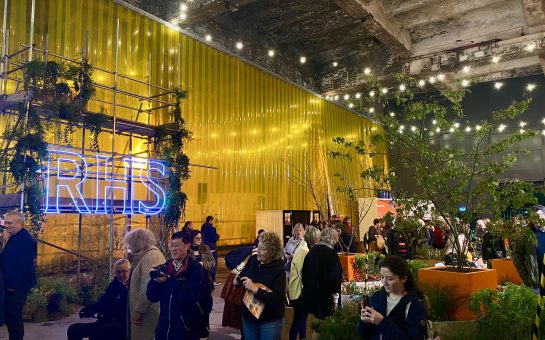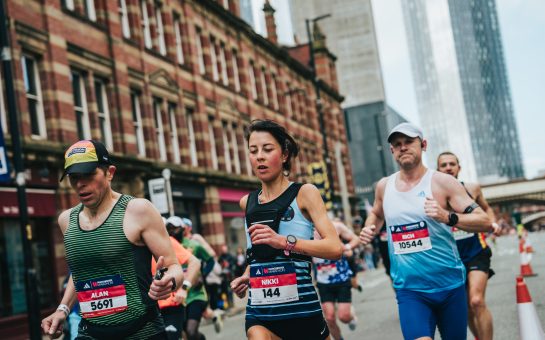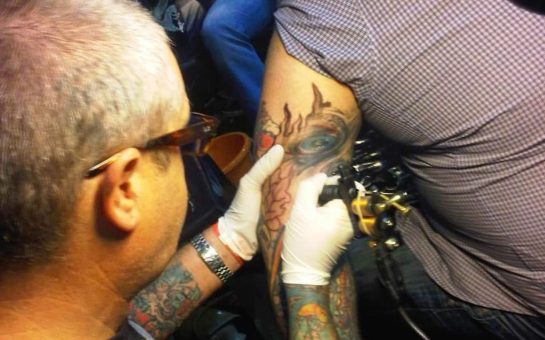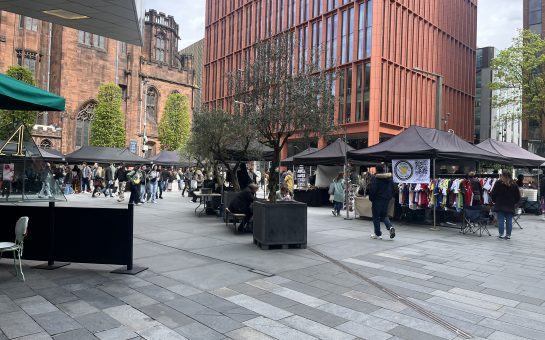Virtual reality (VR) is a 100% computer simulated experience of a real world environment where each user can interact with the digital environment that they are immersed in.
VR is a growing industry, with audiences ranging from children to older adults and the headsets are forecasted by 2021 to be worth $18.8 Billion.
There are a range of different applications for virtual reality within gaming, social interaction to increase usefulness, with many estimating that the technology could revolutionise daily lives.
The co-founder and director of virtual gaming arcade, VR Here, Leszek Grzyl believes that most of Virtual Reality applications will be outside of entertainment it’s just that entertainment created the device but it’s going to go out of that area.
He added that it’s going to go out large to more and more exciting things which will benefit all of us in the future.
Mancunian Matters spoke to leaders in virtual reality and taken a look at the future applications of VR that may become mainstream within our daily lives.
Entertainment
Gaming is at the forefront of virtual reality and there are a range of different devices such as the HTC Vive, Oculus Rift and Sony PlayStation VR when it comes to consumer VR.
Grzyl said: “There is loads and loads of development both in North America, here in UK, Europe and China, it’s a daunting task (keeping up-to-date with software), it’s very difficult, it’s very hard.”
He added that the biggest obstacle they face is with people who haven’t tried it it’s a really hard sell you can’t explain to someone who has never tried it what it is through old media.
“So we found that going out is the only solution into places and show what virtual reality is. The response is amazing, people love it, as soon as they try it they and after a couple of titles they always love it.”
In addition, VR headsets block all the ambient light and distractions so that your experience is not ruined, film making, 3D drawing and painting and theatre watching/making can become a more immersive experience.
59 Productions is a theatre company that uses cutting edge VR technology in their production My Name is Peter Stillman to distort the line between reality and fiction to enhance and transform the experience of the theatre goer before and after they take their seats before show City of Glass.
Manufacturing
Prototypes are being developed with design and manufacturing shifting to a new virtual base.
Applications for property tours, fashion lines, car and kitchen design are all moving away from traditional thoughts and I have spoken to Simon Reid Sector Manager of Liverpool LEP and LCR 4.0 whose project aims to move SME’s into a new digital world.
He said: “That VR will permeate all our lives and within the next five years initial start-up design will be revolutionised.”
This is evidenced by their successful projects, which include 4D Products whose exercise device will market to investors as WaveX microgym after a virtual prototype was made by LEP.
Education and Training
Museums such as The British Museum, the Louvre, The Guggenheim and The Met, among others are starting to create virtually accessible exhibitions and incorporating learning so that all people are able to see new shows that would have previously been location dependent.
There are predictions that VR can be applied to geography, learning, travel, Simulation of natural disasters, terrorism, tourism, crime scenes and Training of athletes, military, space.
Carole Keating, the Creative Producer at The Manchester Science Festival discussed the developments within Manchester and future technologies that they will focus on.
After the Manchester Science Museum hosted a two-day event, VR Playground, with over 4000 people attending and great feedback from visitors.
The event showcased the latest in virtual reality research and technology, with spacewalk experiences, crime scene experiences and independent developers games such as Pacman that visitors could be immersed inside.
Grzyl added: “I believe the man thing that will be driving virtual reality in the future will be training and education.
“As soon as the manual controls will come out, there will be all sorts of manual intensive labour things through virtual reality at much lower cost and much lower risk.
“Same applies to education in medicine we have already surgeons training in virtual reality, we have schools teaching pupils about things they would find hard to show them in traditional media through VR so there is massive scope of things that VR can do outside of entertainment.”
Health and Fitness
There are many positive health impacts of virtual reality with treatments of autism/dementia from increased social interactions, PTSD and phobias treatment being discussed and improved fitness all offering future health benefits to users.
Grzyl said: “VR already is quite body intensive, physically intensive. People work out in virtual reality. There are youtuber’s who lost plenty of kilos and got in shape just playing in VR.
“Well you can join those two worlds you can have fun in VR, become a sports star just by playing games being physically fit so I believe there is an industry for that.”
Image courtesy of the Museum of Science and Industry, with thanks.



